
William Paget, 1st Baron Paget of Beaudesert, was an English statesman and accountant who held prominent positions in the service of Henry VIII, Edward VI and Mary I.
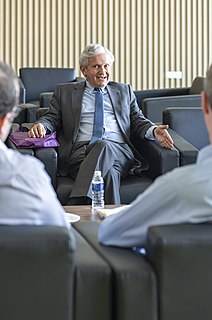
The Keeper or Master of the Rolls and Records of the Chancery of England, known as the Master of the Rolls, is the President of the Civil Division of the Court of Appeal of England and Wales and Head of Civil Justice. As a judge, the Master of the Rolls is second in seniority in England and Wales only to the Lord Chief Justice. The position dates from at least 1286, although it is believed that the office probably existed earlier than that.
The title of Earl of Gloucester was created several times in the Peerage of England. A fictional earl is also a character in William Shakespeare's play King Lear.
Joseph Milner (1744–1797), an English evangelical divine, has a reputation particularly for his work on The History of the Church of Christ (1794–1809).
Sir John Townshend MP, of Raynham Hall in Norfolk, was an English nobleman, politician, and knight. He was the son of Sir Roger Townshend and Jane Stanhope. He was also a soldier and Member of Parliament. He was killed in a duel with Sir Matthew Browne in August 1603.
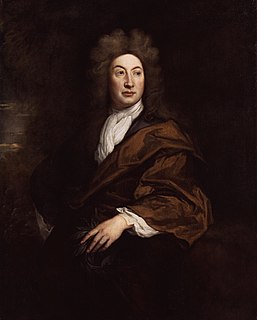
The British Poet Laureate is an honorary position appointed by the monarch of the United Kingdom, currently on the advice of the prime minister. The role does not entail any specific duties, but there is an expectation that the holder will write verse for significant national occasions. The origins of the laureateship date back to 1616 when a pension was provided to Ben Jonson, but the first official holder of the position was John Dryden, appointed in 1668 by Charles II. On the death of Alfred, Lord Tennyson, who held the post between November 1850 and October 1892, there was a break of four years as a mark of respect; Tennyson's laureate poems "Ode on the Death of the Duke of Wellington" and "The Charge of the Light Brigade" were particularly cherished by the Victorian public. Three poets, Thomas Gray, Samuel Rogers and Walter Scott, turned down the laureateship. The holder of the position as at January 2022 is Simon Armitage who succeeded Carol Ann Duffy in May 2019.
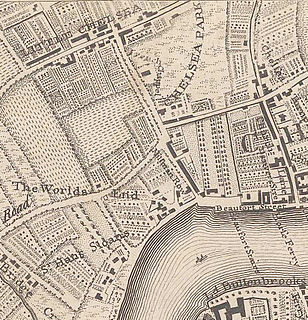
Little Chelsea was a hamlet, located on either side of Fulham Road, half a mile Southwest of Chelsea, London. The earliest references to the settlement date from the early 1600s, and the name continued to be used until the hamlet was surrounded by residential developments in the late 1800s.

The Lieutenant of the Tower of London serves directly under the Constable of the Tower. The office has been appointed at least since the 13th century. There were formerly many privileges, immunities and perquisites attached to the office. Like the Constable, the Lieutenant was usually appointed by letters patent, either for life or during the King's pleasure.

Justice of the Common Pleas was a puisne judicial position within the Court of Common Pleas of England and Wales, under the Chief Justice. The Common Pleas was the primary court of common law within England and Wales, dealing with "common" pleas. It was created out of the common law jurisdiction of the Exchequer of Pleas, with splits forming during the 1190s and the division becoming formal by the beginning of the 13th century. The court became a key part of the Westminster courts, along with the Exchequer of Pleas and the Court of King's Bench, but with the Writ of Quominus and the Statute of Westminster, both tried to extend their jurisdiction into the realm of common pleas. As a result, the courts jockeyed for power. In 1828 Henry Brougham, a Member of Parliament, complained in Parliament that as long as there were three courts unevenness was inevitable, saying that "It is not in the power of the courts, even if all were monopolies and other restrictions done away, to distribute business equally, as long as suitors are left free to choose their own tribunal", and that there would always be a favourite court, which would therefore attract the best lawyers and judges and entrench its position. The outcome was the Supreme Court of Judicature Act 1873, under which all the central courts were made part of a single Supreme Court of Judicature. Eventually the government created a High Court of Justice under Lord Coleridge by an Order in Council of 16 December 1880. At this point, the Common Pleas formally ceased to exist.
Essex Street Chapel, also known as Essex Church, is a Unitarian place of worship in London. It was the first church in England set up with this doctrine, and was established when Dissenters still faced legal threat. As the birthplace of British Unitarianism, Essex Street has particularly been associated with social reformers and theologians. The congregation moved west in the 19th century, allowing the building to be turned into the headquarters for the British and Foreign Unitarian Association and the Sunday School Association. These evolved into the General Assembly of Unitarian and Free Christian Churches, the umbrella organisation for British Unitarianism, which is still based on the same site, in an office building called Essex Hall. This article deals with the buildings, the history, and the current church, based in Kensington.
The English College, Lisbon was a Roman Catholic seminary that existed from the 17th century to the 20th century.
English county histories, in other words historical and topographical works concerned with individual ancient counties of England, were produced by antiquarians from the late 16th century onwards. The content was variable: most focused on recording the ownership of estates and the descent of lordships of manors, thus the genealogies of county families, heraldry and other antiquarian material. In the introduction to one typical early work of this style, The Antiquities of Warwickshire published in 1656, the author William Dugdale writes:
I offer unto you my noble countriemen, as the most proper persons to whom it can be presented wherein you will see very much of your worthy ancestors, to whose memory I have erected it as a monumentall pillar and to shew in what honour they lived in those flourishing ages past. In this kind, or not much different, have divers persons in forrein parts very learnedly written; some whereof I have noted in my preface: and I could wish that there were more that would adventure in the like manner for the rest of the counties of this nation, considering how acceptable those are, which others have already performed
Edward William Grinfield (1785–1864) was an English biblical scholar.
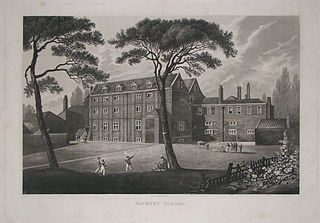
Newcome's School was a fashionable boys' school in Hackney, then to the east of London, founded in the early 18th century. A number of prominent Whig families sent their sons there. The school closed in 1815, and the buildings were gutted in 1820. In 1825 the London Orphan Asylum opened on the site. Today the Clapton Girls' Academy is located here.
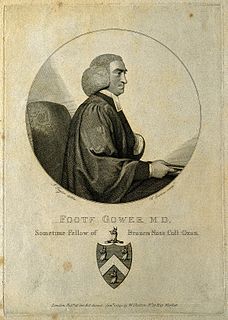
Foote Gower (1725/6–1780) was an English cleric, academic and antiquarian.








